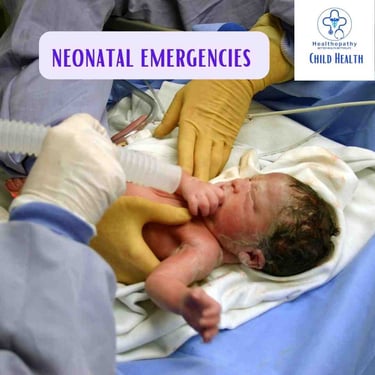"Healthopathy for Neonates: A Comprehensive Newborn Care Guide"
Welcome to Healthopathy, where we prioritize the health and wellbeing of our littlest patients - neonates. As parents, caregivers, and healthcare professionals, we understand the importance of providing gentle and compassionate care to newborns during this critical stage of life.
Our Neonates: A Gentle Approach to Newborn Care page aims to provide you with the most up-to-date information and resources on how to care for your neonate with the utmost gentleness and attention. From feeding and diapering to sleep and safety, our experts have curated a comprehensive guide to help you navigate the complexities of neonatal care.
We believe that by taking a gentle approach to newborn care, we can promote optimal physical and emotional development for our little ones. With our guidance and support, you can ensure that your neonate receives the care and attention they need to thrive.
Thank you for choosing Healthopathy as your trusted source for neonatal care information. We look forward to partnering with you on this journey of nurturing and protecting your precious newborn.
Basic neonatal care is essential for the healthy growth and development of newborn babies. Here are some of the most important topics related to basic neonatal care:
Bathing: Newborn babies need to be bathed properly to keep their delicate skin clean and healthy.
Diapering: Diapering is a critical part of neonatal care, and it involves keeping the baby clean and dry while preventing diaper rash.
Umbilical Cord Care: Proper care of the umbilical cord stump is important to prevent infections and promote healing.
Skin Care: Newborn skin is delicate and requires special care to prevent dryness, rashes, and other skin problems.
Clothing: Choosing the right clothing for your newborn can help keep them comfortable and protected.
By providing parents with the necessary information and guidance on these topics, they can ensure the best possible start for their newborns.
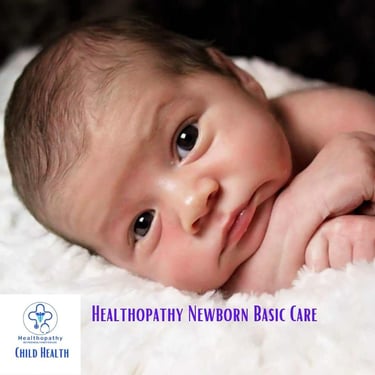

Feeding your newborn is an important part of neonatal care, as it provides the necessary nutrients for their growth and development. There are different feeding options available for newborns, including breastfeeding, formula feeding, and combination feeding.
Breastfeeding is the recommended method of feeding for newborns as it provides a range of benefits, including improved immunity, better digestion, and a closer bond between the mother and baby. To ensure successful breastfeeding, it's important to position the baby correctly and offer both breasts at each feeding. It's also important to seek help from a lactation consultant or healthcare provider if you experience any difficulties with breastfeeding.
Formula feeding is another option for feeding newborns, and it's a good choice for mothers who are unable to breastfeed or choose not to. To safely prepare formula, it's important to use clean bottles and nipples and follow the instructions on the formula packaging carefully. It's also essential to sterilize the bottles and nipples to prevent infections.
Combination feeding involves a mix of breastfeeding and formula feeding, and it can be a good option for mothers who want to breastfeed but also need to supplement with formula. It's important to discuss any concerns or questions about feeding options with your healthcare provider to ensure the best possible nutrition for your newborn.
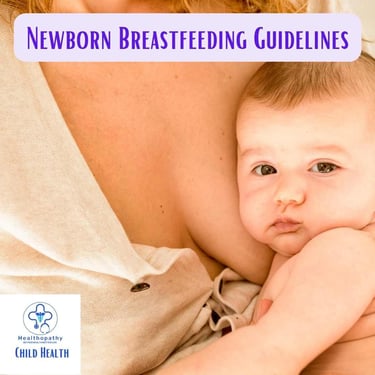

Sleep safety is a crucial aspect of neonatal care, as it can help prevent Sudden Infant Death Syndrome (SIDS) and other sleep-related injuries. Here are some guidelines for creating a safe sleep environment for your newborn:
Place your baby on their back to sleep: This is the safest sleep position for babies and can reduce the risk of SIDS.
Use a firm and flat sleep surface: A crib or bassinet with a firm, flat mattress and fitted sheet is the safest sleep surface for babies.
Keep soft objects and loose bedding out of the sleep area: Pillows, blankets, and stuffed animals can increase the risk of suffocation or SIDS.
Avoid bed-sharing or co-sleeping: Bed-sharing with your baby can increase the risk of suffocation, strangulation, and SIDS.
Room-sharing is recommended: It's recommended that your baby sleeps in the same room as you for the first six to twelve months of life, but on a separate sleep surface.
It's also important to be aware of the risks associated with co-sleeping, which is when a baby sleeps in the same bed as an adult. Co-sleeping can increase the risk of suffocation, strangulation, and SIDS, especially if the adult is under the influence of drugs or alcohol. If you choose to co-sleep, make sure to follow safe sleep practices, such as using a firm and flat sleep surface and keeping soft objects and loose bedding out of the sleep area.
By following these guidelines, you can help create a safe sleep environment for your newborn and reduce the risk of sleep-related injuries.
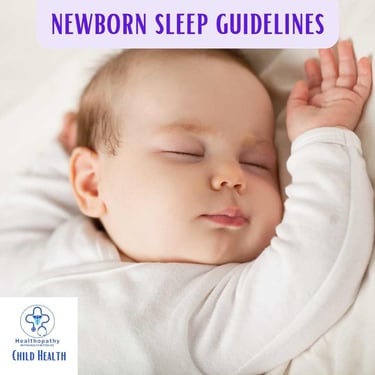

Welcome to Healthopathy Official's Neonatal Common Concerns. Here, we provide comprehensive information on the common health concerns that affect newborn babies. Our expert panel of pediatricians and neonatologists share evidence-based insights, practical tips, and strategies to help parents and caregivers navigate the challenges of caring for a newborn.
We cover a wide range of topics, including jaundice, feeding and nutrition, sleep and colic, umbilical cord care, newborn screening tests, and much more. Our goal is to empower parents and caregivers with the knowledge and tools they need to give their newborns the best possible start in life.
Stay informed with our latest articles, videos, and resources, and join our community of like-minded individuals who are dedicated to promoting neonatal health and well-being. Subscribe to our page and tap the notification bell to stay updated with our latest content. Let's work together to ensure that every newborn receives the best possible care and support.


Neonatal developmental milestones are the key markers of growth and development in the first few months of a baby's life. These milestones include physical, cognitive, and social-emotional achievements, such as rolling over, grasping objects, making eye contact, and responding to stimuli.
At Healthopathy Official, we recognize the importance of tracking these milestones to ensure that newborns are developing at a healthy and appropriate pace. Our expert panel of pediatricians and neonatologists provide evidence-based insights, tips, and strategies to help parents and caregivers understand and track their baby's developmental progress.
From the first few days of life to the first few months, we cover all the important neonatal developmental milestones. Stay informed with our latest articles, videos, and resources, and join our community of like-minded individuals who are dedicated to promoting neonatal health and well-being. Subscribe to our page and tap the notification bell to stay updated with our latest content.

visit our youtube channel for more
Neonate postpartum care is crucial for the health and well-being of both newborns and new mothers. At Healthopathy Official, we understand the challenges that parents face in caring for a newborn, especially in the postpartum period.
Our expert panel of pediatricians and neonatologists provide evidence-based insights, tips, and strategies to help parents and caregivers provide the best possible care for their newborn during this critical time. We cover a wide range of topics, including feeding and nutrition, sleep and safety, hygiene and diapering, and much more.
We also recognize the importance of postpartum care for new mothers, and provide information on self-care, recovery after childbirth, and the management of postpartum depression and anxiety.
Stay informed with our latest articles, videos, and resources, and join our community of like-minded individuals who are dedicated to promoting neonatal and maternal health and well-being. Subscribe to our page and tap the notification bell to stay updated with our latest content. Let's work together to ensure that every newborn and new mother receives the best possible care and support.
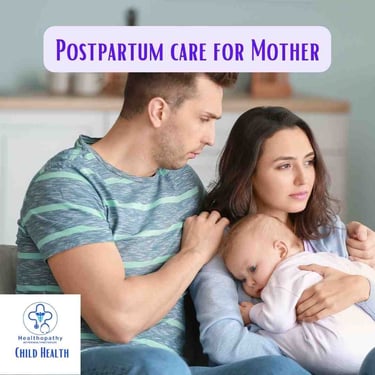

Neonate emergency situations can be frightening for parents and caregivers, and require quick and appropriate action to ensure the health and safety of the newborn. At Healthopathy Official, we provide information and resources on how to recognize and respond to neonate emergency situations.
Our expert panel of pediatricians and neonatologists provide evidence-based insights, tips, and strategies to help parents and caregivers handle emergency situations such as choking, breathing difficulties, seizures, and sudden infant death syndrome (SIDS).
We also cover common neonate emergency situations such as high fever, vomiting, diarrhea, and dehydration. We provide information on when to seek medical attention and what steps to take while waiting for emergency medical services.
